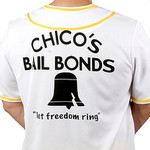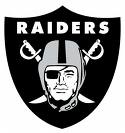Shirt Sponsorships
Why don't American professional sports franchises in the 'major' sports (NFL, NBA, MLB) enter into lucrative jersey sponsorship deals as is common in the rest of the world?
English top-level soccer clubs command as much as $30M per year for such arrangements.
It can't truly be some sort of argument for the 'purity' of the games, every other aspect of the presentation and broadcast of the games themselves is 'sponsored' already. Next Sunday's Super Bowl game will be played in 'Sun Life Stadium'. And no, 'Sun Life' is not a reference to Miami's carefree, sun-filled lifestyle, it is named for Sun Life Financial corporation, a large financial services company.
Advertising is plastered on most available surfaces in stadiums already, and on television broadcasts everything from timeouts, in-game statistical graphics, and the pre-game, halftime, and post-game shows are all 'brought to you by' some (insert from the following, beer, insurance, male impotency drug) company.
But for some reason, corporate sponsorships on the jerseys/uniforms themselves are still resist ed, I think mostly from the notion that corporate logos on the players is just too much commercialism encroaching on the sanctity (ahem) of the competition.
ed, I think mostly from the notion that corporate logos on the players is just too much commercialism encroaching on the sanctity (ahem) of the competition.
To me it is both hypocritical and silly.
Organizations could benefit from the exposure and if they choose the right club; the association with success, or even a team's reputation for a particular style of play. In the NBA, a team like the San Antonio Spurs that are known for attention to detail, strong leadership, team play, and excellence would be a good fit for a precision manufacturing firm, or perhaps an accounting and audit services group. Maybe Intel or IBM would be a good fit.
The Los Angeles Clippers, who have a legacy of bad luck, poor management, and unfortunate player  injuries, might be a good fit for a personal injury law firm, hospital, or insurance company. I could see the Aflac Duck adorning the Clips' jerseys.
injuries, might be a good fit for a personal injury law firm, hospital, or insurance company. I could see the Aflac Duck adorning the Clips' jerseys.
The funny thing is shirt sponsorships are common in American youth sports, most every kids soccer, baseball, or hockey team has a local shirt sponsor. The chief function seems to be to the right to post the framed team picture on the wall at the end of the season.
And when the partnership between the sponsoring corporation and the team is a perfect match, it can strengthen both parties and reinforce their brands.
It worked for the Bad News Bears right?
So what team would you like to see your organization's name on?

 Steve
Steve

